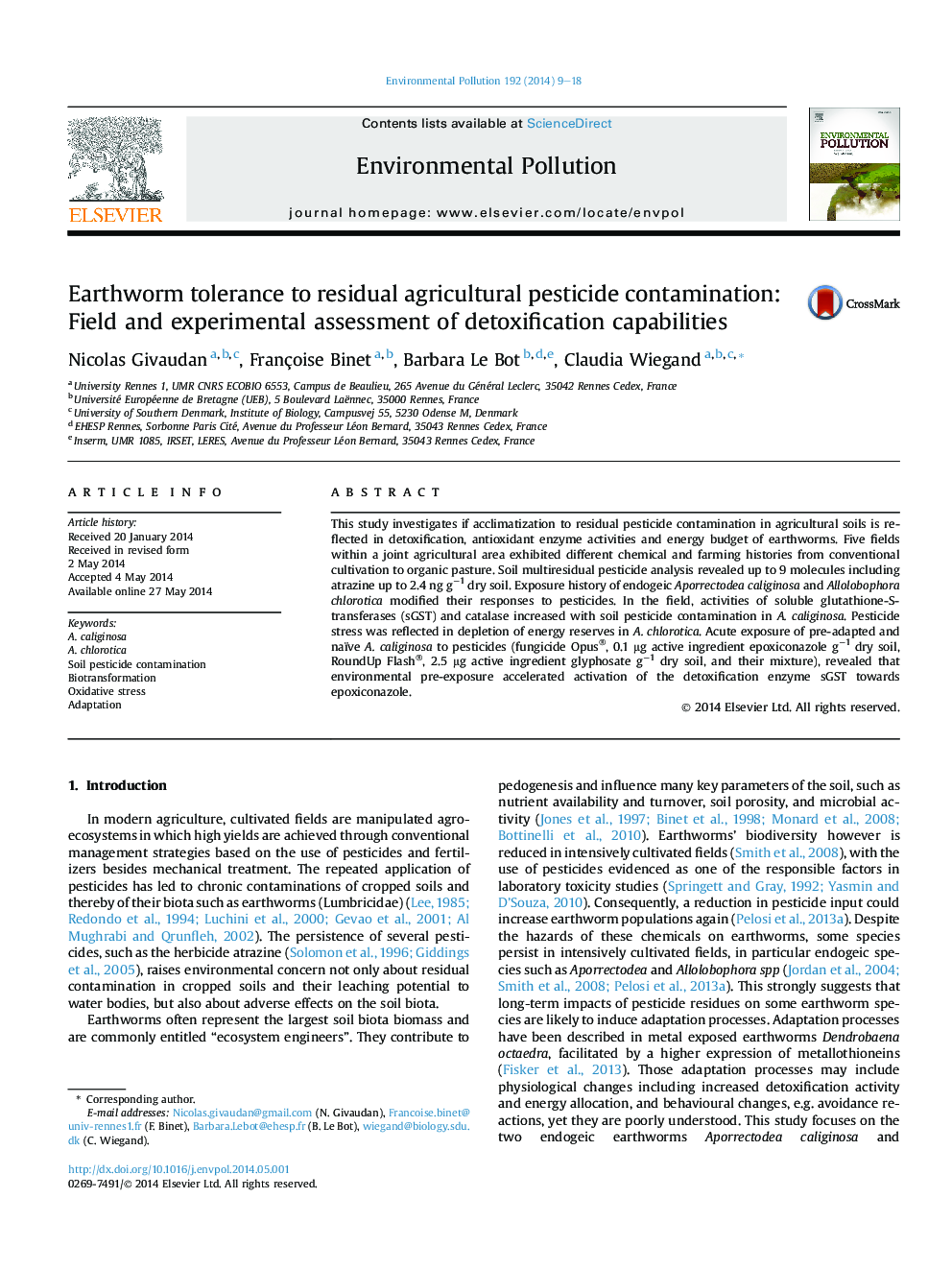| کد مقاله | کد نشریه | سال انتشار | مقاله انگلیسی | نسخه تمام متن |
|---|---|---|---|---|
| 4424334 | 1619180 | 2014 | 10 صفحه PDF | دانلود رایگان |
• Pesticides in fields affect physiological responses in earthworms species specific.
• Pre-exposed population's detoxification enzyme responds faster to pesticide stress.
• Soil analysis reveals persistent multiresidual pesticide contamination.
This study investigates if acclimatization to residual pesticide contamination in agricultural soils is reflected in detoxification, antioxidant enzyme activities and energy budget of earthworms. Five fields within a joint agricultural area exhibited different chemical and farming histories from conventional cultivation to organic pasture. Soil multiresidual pesticide analysis revealed up to 9 molecules including atrazine up to 2.4 ng g−1 dry soil. Exposure history of endogeic Aporrectodea caliginosa and Allolobophora chlorotica modified their responses to pesticides. In the field, activities of soluble glutathione-S-transferases (sGST) and catalase increased with soil pesticide contamination in A. caliginosa. Pesticide stress was reflected in depletion of energy reserves in A. chlorotica. Acute exposure of pre-adapted and naïve A. caliginosa to pesticides (fungicide Opus®, 0.1 μg active ingredient epoxiconazole g−1 dry soil, RoundUp Flash®, 2.5 μg active ingredient glyphosate g−1 dry soil, and their mixture), revealed that environmental pre-exposure accelerated activation of the detoxification enzyme sGST towards epoxiconazole.
Journal: Environmental Pollution - Volume 192, September 2014, Pages 9–18
